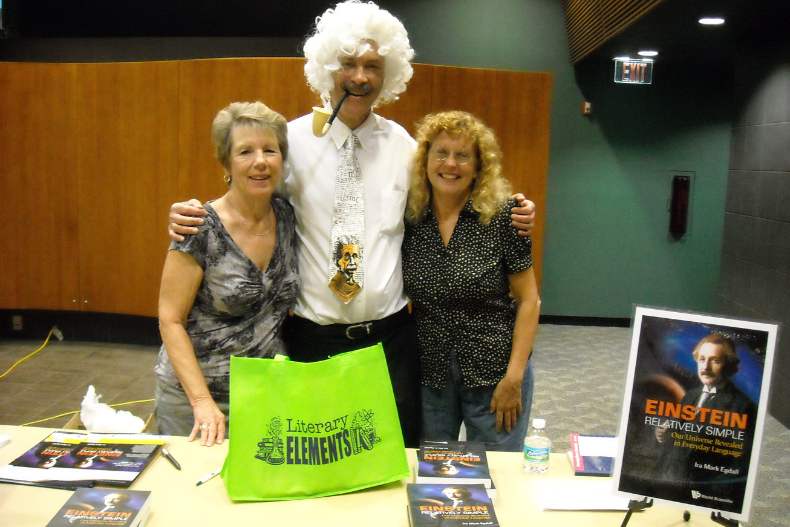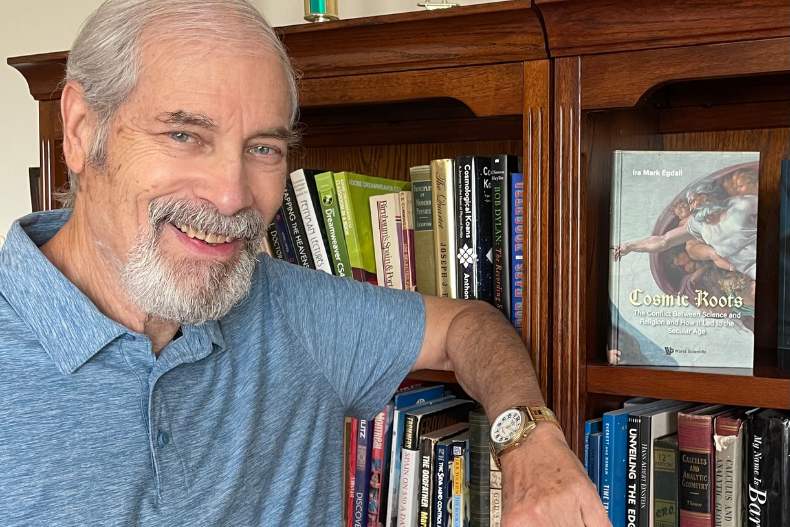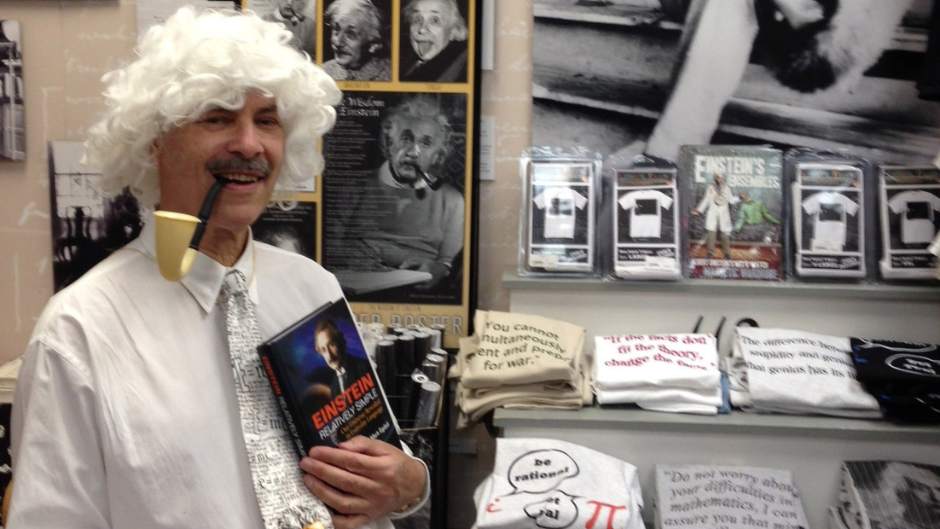Mark Egdall is not afraid of a little controversy. That's why, as a physics instructor at the Osher Lifelong Learning Institute (OLLI), he hasn't hesitated to tackle such thorny subjects as time travel, the origins of the universe, and the centuries-old tension between science and religion.
His goal, Egdall says, is not to be contrarian – but to explain the wonders of modern science to people who perhaps never thought they could understand such topics.
Egdall, who has been known to lecture on Einstein's theory of relativity dressed as the Nobel Prize-winning scientist, said some of his students have told him they wished they had had someone like him in their science classes in school.
"I love when students say they are able to understand a particular scientific subject for the first time," he said. "It's the best feeling. That and when my students spontaneously applaud at the end of a course."
His approach seems to be working, as it has made him one of the most popular science instructors at OLLI, said Michelle Alvarez, director of the program. His topics range from astronomy and cosmology to modern physics and the origins of religion.

"What I have heard from our students is that what makes his classes so interesting is that he simplifies complex subjects to where they can actually understand it," Alvarez said.
Some students sign up for almost every class Egdall teaches.
"Choosing a favorite class would be like choosing a favorite child," said OLLI member Joyce Schiffman, who said she has lost track of how many of Egdall's courses she has taken over the years. "All his classes are mesmerizing. He explains everything so well."
Egdall got his start as an OLLI instructor 15 years ago, after more than three decades in the aerospace industry. He previously managed state-of-the-art infrared sensor systems for NASA and the US Department of Defense. He also worked on large telescope systems, high-energy laser optics, and studies for the Hubble Telescope.
Since retiring, he has written three books, including Einstein Relatively Simple: Our Universe Revealed in Everyday Language, which received a Florida Book Award for general non-fiction from the Florida State Universities Libraries.
His latest book, Cosmic Roots: The Conflict Between Science and Religion and How it Led to the Secular Age, was named a 2023 Nautilus Book Awards winner in the category of science and cosmology.

"My goal is to explain concepts with clarity, patience, and humor," said Egdall, who earned his bachelor's degree in physics from Northeastern University. "I also want students to gain an appreciation of the brilliance and hard work of the great scientists and their profound influence on today's technology and culture."
Egdall, who has lectured everywhere from Star Trek conventions to public libraries and bookstores, said he finds his OLLI students to be among his most attentive and engaged audiences.
"UM OLLI students are wonderful to teach," he said. "Their interest and intelligence shines through in their questions. I learn from them."
His next course for OLLI may focus on the landmark discoveries of space-based telescopes, such as NASA's Webb and Hubble telescopes.
"I would present on the design, engineering, and extraordinary discoveries of space-based telescopes," he said. "I would also discuss the amazing gravitational-wave detector systems such as LIGO (the Laser Interferometric Gravitational-Wave Observatory) and Virgo, and the implications of their breakthrough findings."
OLLI is the perfect forum for lifelong learners to explore such topics, Egdall said.
"It's a wonderful place to learn new things on a broad range of topics," he said. "And it's also a great place to make new friends."
To learn more about OLLI, visit miami.edu/olli

